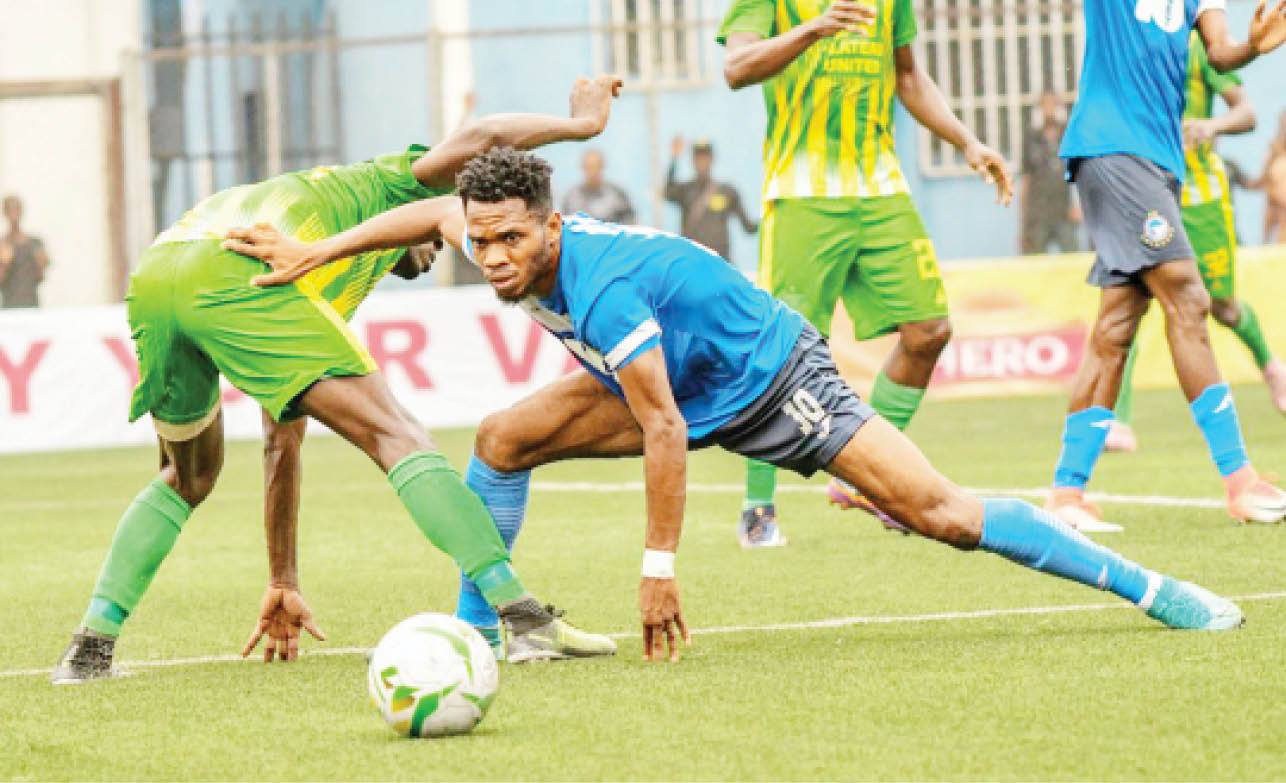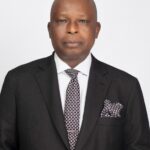Without any iota of doubt, the game of football has a global appeal. It attracts huge followership, which underscores its popularity. Although countries like the United States of America (USA) and India are easily identified with basketball and cricket respectively, they still have passion for football, which is called soccer in the USA.
Interestingly, football is a major income earner for countries like Brazil and the United Kingdom, where it is operated as a viable business. Football, in these countries, is not for recreation as it is the case in most developing countries.
Despite the setback caused by the outbreak of the COVID-19 pandemic, Brazil still exports more footballers than any other country in the world. The South American nation leads the world with 2,742 footballers playing abroad, ahead of Argentina (2,330) and France (1,740), according to a recent report by the International Centre for Sports Studies in Switzerland.
According to available records, between 2013 and 2020, the transfer fees of Brazilian male football players to FIFA clubs around the world declined by roughly 12 per cent in relation to 2019, but the country raked in $326 million on transfer of players to foreign clubs.
A cursory look at the English Premier League also proves that in countries where football is business, clubs also make huge revenues from players’ transfers and sponsorship deals.
The beautiful game is a multi-billion pound industry in the UK, with the best football players in the world raking in vast sums with every swipe of the ball.
Interestingly, the Premier League, founded on August 15, 1992, has the highest revenue of any association football league in the world, with total club revenues of €2.48billion in 2009 and 2010.
In 2013 and 2014, due to improved television revenues and cost controls, Premier League clubs collectively made a net profit in excess of £78million, exceeding all other football leagues.
In 2010, the Premier League was awarded the Queen’s Award for Enterprise in the International Trade category for its outstanding contribution to international trade and the value it brought to English football and the United Kingdom’s broadcasting industry.
It is, therefore, not surprising that the Premier League is the fourth wealthiest professional sport league after the NFL, the MLB, and the NBA by revenue. From 2019, the league generated around £3.1billion per year in domestic and international television rights.
In the Premiership, Bundesliga, La Liga, Ligue 1 and Italian Serie A, players earn weekly wages in hundreds of dollars, euro or pounds sterling as the case may be. At the moment, Lionel Messi, who only recently joined Paris Saint Germain in the Ligue 1 from Barcelona, is the highest salary earner in the world. He takes home $1,325,000 per week.
In Nigeria, professional football debuted on May 17, 1990 after the then Minister of Youth and Sports, Air Commodore Anthony Ikazoboh (retd) instructed the then Nigeria Football Association (NFA) to commence the professional football league.
The professional league, which was launched at the famous Onikan Stadium, now renamed Mobolaji Johnson Stadium, commenced with 16 club sides spread all over the country.
ACB of Lagos; BCC Lions of Gboko; Obanta United; Iwuanyanwu Nationale; Highlanders of Jos; JIB Rocks of Jos; Kano Pillars; Bendel Insurance; Bendel United; Ranchers Bees of Kaduna; Calabar Rovers; 3SC of Ibadan; Stationary Stores, Lagos; Julius Berger of Lagos and Enyimba FC, started professional football in Nigeria.
Only few of these clubs still exist because they were immediately stifled by government’s direct involvement in football sponsorship. Most of the clubs that kick-started professional football in Nigeria were sponsored by individuals and corporate organisations. For instance, business moguls like Emmanuel Iwuanyanwu founded and funded Iwuanyanwu National and Israel Adebayo sponsored Stationery Stores of Lagos for many years. There were also privately owned clubs like Abiola Babes funded by the late Chief MKO Abiola, Flash Flamingoes and Obanta United.

In the good old days, there were also corporate organisations that sponsored football clubs like NEPA FC, Lagos, ACB, Leventis United, First Bank, Lagos, IBWA, Nigerian Railways and Julius Berger of Lagos.
At the moment, the professional league in Nigeria is called Nigeria Professional Football League (NPFL). The league is dominated by government-owned clubs.
Following the relegation of FC Ifeanyi Ubah in the 2021 NPFL season, only MFM and Remo Stars will be competing as privately owned clubs in the 2021/2022 season.
The rest of the clubs, Lobi Stars; Enyimba FC; Akwa United; Plateau United; Heartland FC; Sunshine Stars; Nasarawa United; Wikki Tourists; Gombe United; Niger Tornadoes; Kwara United; 3SC; Dakkada FC; Enugu Rangers; Abia Warriors; Katsina United; Rivers United and Kano Pillars, are owned and funded by state governments.
However, in climes where football is business, clubs are founded and sponsored by individuals and corporate organizations, whose major objective is to make bountiful returns on their investments through players’ transfers and other sponsorship deals.
It is for this reason that clubs in Europe exist for decades without going extinct. They are also rated based on their earnings. At the moment, the top five richest clubs in the world are Barcelona ($4.76b), Real Madrid ($4.75b), Bayern Munich ($4.215b), Manchester United ($4.2b) and Liverpool ($4.1b).
In the case of the NPFL, since almost all the clubs are funded by state governments, the business side of the sport is relegated to the background. The clubs usually depend on allocations from the government to compete in the league.
Merchandising, which is one of the major sources of revenue for European clubs, is not a thing of priority to Nigerian clubs. The chairmen who lead the management committees are usually cronies of state governors. Consequently, they rarely account for money released to them for the clubs.
One other thing that has continued to portray the NPFL in bad light is the shoddy and secretive manner players are transferred to European clubs. Clubs make money from the transfer of some of the best talents in the NPFL, but most times, such money is never remitted to government’s coffers.
And the failure of the League Management Company (LMC) to tie down a long term title sponsor of the league has remained a major setback for the league. In the past, corporate organisations like Globacom and South Africa’s MultiChoice Group, owners of DSTV, entered into partnership deals with the LMC, but none endured the shortcomings in the system.
Consequently, for some years now, the LMC has organised the NPFL without a major sponsor. Invariably, some of the financial responsibilities which the LMC once shouldered have fallen heavily on the clubs, who in turn rely completely on funds from the government.
These, among other inadequacies, cast a huge shadow of doubt on the self acclaimed professionalism in the NPFL. Those critical of the league say it is not better than amateur football leagues that are played elsewhere.
Therefore, Nigerian football stakeholders who spoke to Trust Sports unanimously said the only way out was for the government to hands off the running of football clubs. They also argued that as long as governments continue to fund clubs, true professionalism would remain elusive.
The chairman of FCT Football Association and proprietor of FC Hearts, Mouktar Adam Mohammed, said the NPFL did not measure up to a professional league.
He maintained that the league was lagging behind in so many areas and could not be rated among football leagues that are truly professional.
“I don’t think it is fully professional, as quite a number of fundamental things are not in place. One of the things lacking is integrity. The biggest threat to the league is match fixing and lack of respect for contracts between clubs and players.
“Players and coaches’ rights are not fully protected. Salaries, bonuses and contracts are not paid; and if not paid, how can they be enforced, especially on the part of the clubs? The system is still developing and the confidence from fans, public and sponsors is not 100 per cent.
“There is also a credible ranking system globally that takes all the indices and gives each league a place. Data is the key in all decision making, so we must be informed and back our decisions with facts.
“According to the Soccer power index, the English Premier League is number one, followed by the Spanish La Liga and German Bundesliga.
“Change you must be quick to adapt; for example, in the Spanish La Liga, I am sure that with the exit of Messi, they must do an impact analysis to see how the numbers look, which is both financial and social.
“It is not rocket science. Once you structure it properly and the foundations are right, it can be done,” he said.
On his part, a former Nigerian international, Garba Lawal, said the major problem bedevilling the league was lack of sponsors.
The former Super Eagles and Roda JC of Holland utility player reiterated that without sponsors it would be a herculean task to manage the league.
“It is a professional league, but the major problem is lack of sponsors. The LMC is finding it difficult, and without funds for logistics and the rest, there is no way the league will be truly professional.
“If there is no money, there will automatically be no league. But where are the sponsors? The LMC is trying its best to see what they can do about funding.
“If there is money, all other things can be done. How do you manage a league when you don’t have sponsors? The new season is supposed to resume, but the league can’t restart because there is no money,” he said.
The sporting director of the NPFL side, Abia Warriors, Patrick Ngwaogu, also weighed in on the structure of clubs that are competing in the league.
He said the NPFL was not fully professional because almost all the clubs are sponsored by the government who appoint their boys as club chairmen based on political considerations.
“Our league is said to be professional, but in the real sense, it is not yet professional.
“Almost 99 per cent of the clubs in the NPFL are owned by state governments. The governors then appoint the so-called club owners.
“The problem here is that most of the club chairmen circumvent the laws as they do everything possible to win in order to impress their bosses, and if possible, retain their positions.
“Elsewhere, club chairmen or chief executives are elected and given a specific tenure to preside over their clubs. They then plan for the future. Emphasis is not on immediate results. Such cubs are well structured.
“I think we should start thinking of electing real club owners who will have sustainable programmes that will keep the clubs going, even if they leave office,” he advised.
The secretary-general of the Association of Nigerian Professional Footballers, Austin Poopo said, “There is a structural and governance challenge in the NPFL. Government ownership of football clubs is an aberration. It is not in compliance with global best practices.
“Government-owned clubs have short-term targets, but football requires a long-term sustainable structure and good governance.”
A former secretary-general of the then Nigeria Football Association (NFA), Dr Tijjani Yusuf, also feels strongly that the NPFL is everything but professional.
“What is professional in the Nigeria Professional Football League? Is it a situation where the average earnings of a player is not up to N1,000,000 per month, where 85 per cent of the clubs are owned by state governments, a situation where you don’t have sponsors that can dole out N50,000,000 to a club or a situation where there is no television rights?
“What of a situation where the LMC cannot pay officials their indemnity as when due, or where gate proceeds per match cannot pay allowances of officials?
“We have a long way to go. I think those running the league know what to do,” he concluded.

 Join Daily Trust WhatsApp Community For Quick Access To News and Happenings Around You.
Join Daily Trust WhatsApp Community For Quick Access To News and Happenings Around You.


